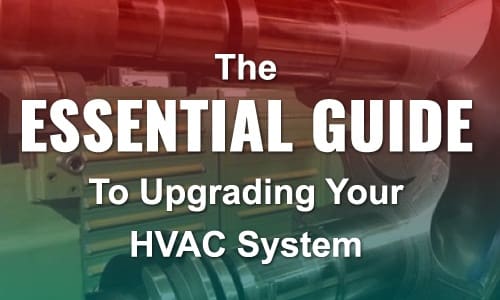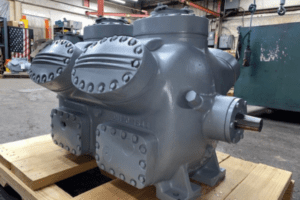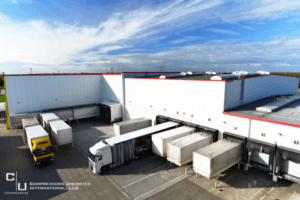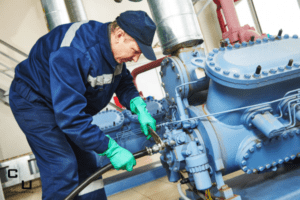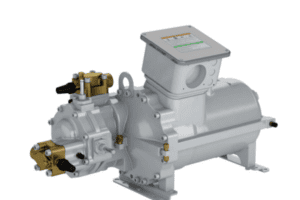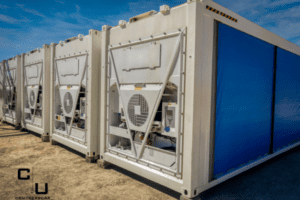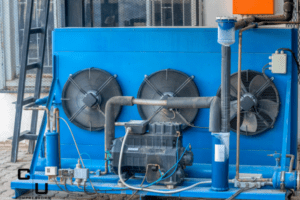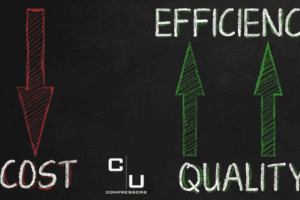In the United States, HVAC systems account for 30% of the energy used in commercial buildings. Although new technologies have significantly improved the energy efficiency of HVAC equipment, even the most advanced and expensive HVAC system that has been maintained properly will eventually become obsolete.
As an HVAC unit gets older, it will work less efficiently. Not only can this increase your energy bills; it can also make it more difficult for you to regulate temperatures and humidity inside your building.
Because replacing a commercial HVAC system can be expensive, this blog post will discuss a lower cost option available to building owners and managers: upgrading system components. Here are a few elements you can opt for in order to improve the performance of your HVAC unit and ensure higher levels of comfort throughout your building.
Variable-Speed Technology
Variable frequency drive, digital scroll technology, inverter scroll technology, and moduload capacity control are some of the technologies compressor manufacturers use nowadays in order to ensure their compressors match fluctuating heat loads in buildings.
Conventional compressors, without an unloader, have two operating positions: “on” and “off”. When the compressor is “on”, it runs at full capacity, irrespective of the heat load. Once it brings the indoor temperature and humidity at the desired levels, it turns off until the temperature increases. When the temperature rises, the compressor starts running again. A compressor that cycles on and off frequently wastes energy because it consumes a lot of energy to start. Additionally, frequent cycling leads to premature component wear and tear.
What’s more, full HVAC system capacity isn’t always needed in buildings. Therefore, selecting a compressor equipped with capacity control is often the preferred choice for many commercial applications.
Unlike conventional compressors, variable-speed compressors can save a lot of energy. By varying their output to match heat load demands, these compressors can reduce energy consumption, while ensuring optimum system performance and constant temperature/humidity levels throughout buildings. Furthermore, a remanufactured compressor provides the same performance and efficiency as a factory-new compressor that uses the same technology, but at a significantly lower price.
HVAC Controls
HVAC controls can help business owners and managers efficiently regulate the cooling, heating, and ventilation of designated areas. This can be done by placing control systems in different parts of a building. Based on the readings provided by these systems, a central computer compares the actual state of an area with the target temperature and humidity values. Then, it indicates the actions the HVAC system needs to take (e.g. start the ventilation, the compressor, or the heating element) in order to meet the preset values.
HVAC control systems range from independent digital controls to built-in proprietary controls or building-wide control systems. Building-wide controls, for instance, can be used to monitor temperatures in different parts of a building, record and send back operational parameters, and turn conditioning completely off during unoccupied periods.
Air Filtration
Every commercial HVAC system comes with some form of air filtration. But sometimes replacing standard filters with higher quality, more efficient filters can improve both indoor air quality and the performance of the HVAC system.
A good filter will reduce the number of airborne particles, dust, and contaminants in your air supply. This will keep your ductwork clean for longer, which will prolong the life of your HVAC system and ensure the health of building occupants. Also, airflow can be controlled more efficiently by using sophisticated, automatic controls that supply proper amounts of ambient air from outside for cooling, ventilation, and heating in commercial buildings.
You can also enhance your HVAC unit’s ability to remove pollutants with a dedicated in-duct UV light air purifier, also referred to as UVGI cleaner. This system can further eliminate harmful particles, like mold spores and bacteria.
Sound Attenuators
Excessive noise due to the air being circulated through the HVAC system can be both annoying and distracting to customers and employees. To reduce the noise, silencers with internal baffles can be fitted to the supply and return air ducts.
If you believe it’s time to upgrade your HVAC system with a remanufactured compressor, feel free to contact us at Compressors Unlimited. As a leading compressor remanufacturer, we can help you determine which compressor will work best for your facility.

